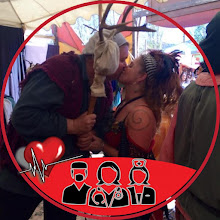
In a land where multiple dungeons exist (Arduin had dozens), the ultimate financial impact had to be felt by the economies of the kingdoms to some degree.
First, there is the village, and especially the tavern, that are in the dungeon vicinity. Even if a party of adventuring Elmer Fudds only come stay every few weeks, some serious coin is getting dropped even before the dungeon crawl. There is always that supply mercantile with all your dungeoneering needs, from spikes to ropes to ten foot poles. Soup to nuts. And of course a good DM will have his merchants charging big markup. We are practically in the wilderness, you know. An especially well traveled dungeon’s village will perhaps even have a magic supply shop (run by a high level mage, of course) where the parties “Wiggle Fingers” can replenish components and scroll supplies. And that store ain’t cheap.
The local tavern may just fare the best from deep pocketed delvers. The locals know dungeon crawlers when they see them. Word gets around town and in minutes locals are pouring in to see what the fuss is about. Adventurer’s new to the area will know that locals are the best source of info about the dungeon and it’s rumors and legends. Liberal spending, even upwards of 100 gold for endless rounds of ale and meat pies, will not only loosen some tongues, but also guarantee good will from the tavern owner. And that tavern owner knows more rumors and legends than most.
So a party goes to deeper levels, and when they are done the survivors will set out for the bigger towns and cities loaded with wealth. They’ll spend that money in the city, or perhaps higher level PC’s will go off to build housing for their retainers and followers. And if you are playing 1st ed. by the book, then there will be trainers and mentors all over the place profiting from the characters hard fought cash. Magic users will spend much dungeon money, from guild fees to research materials. Clerics will enrich temple coffers (and hopefully the temple leaders will see fit to invest in the local infrastructure) of their favored god. Fighter, thieves, and bards will debouche their money away into the economy in a thousand ways.
The affect of dungeon money upon the economy may depend on your campaign world. Perhaps, as was suggested in a comment in my last post, the Dungeon Age is a time of failing civilization, where these dangerous places are a decaying product of the withering world. In a case like this, an influx of wealth may fall flat in a barter economy, or it may overwhelm the delicate system that still finds worth in coin and gem in small settlements.
In my own game world, I think of the Dungeon Age as a time of great civilized growth. Treasure from dungeon delves flowed eventually to town and city economies, and added to the advancement you find in new, successful civilizations.
In time, The Age of Dungeons mostly passes, these secluded mythic places drying up or falling into ruin. The magic that kept them going begins to unweave and float away into the ether. Mountain and forest towns in the howling wilderlands, once booming from dungeon gold, slowly shrink and eventually fall to ruin and abandonment.
On comes an age of high adventure, when greed and lust gives way to heroics. There are still secluded dungeons like those of the bygone age, full of magic and treasure. But they are now few and far between. Occasionally the greedy seekers of loot hunt down these fabled places, just like the delvers of the past age. But the norm for a hero of this bright new age is not to delve for gold and silver, but to fight in great battles, and to go on great quests, perhaps travelling to faraway lands. More so than in The Dungeon Age, able bodied adventurers set out to evil places not for merely wealth, but to destroy that very evil, or other noble cause.
But do not step into those dark corners of the world lightly, even in this luminous new age. Though the Dungeon Age has passed, there are still dungeons hidden away. Some are still vibrant with hostile intent to those who invade them. But they are there. And they are waiting for the greedy to seek them out.
















I love the whole concept of the Dungeon Age. It really helps to rationalize the whole concept of how and why dungeons exist in a game world. If I ever run another D&D campaign, I'm definitely going to include this concept in it! Great thinking and a fun read.
ReplyDeleteCool, sounds kinda like mythical ancient Greece, with the occasional Minotaur or Medusa to be found around and about, but mainly a civilized mileau.
ReplyDeleteThis is awesome. I wonder about the older civilizations that the dungeon wealth originated in. Or did the wealth perhaps originate in the dungeons (mines?) themselves...?
ReplyDeleteI hope you continue with the Dungeon Age posts - it's a very cool line of thought!
This explains why the wages of hirelings are so low compared to the cost of everything (a day's wage for a labourer is apparently about the cost of a pint of beer in the DMG): the prices given are assuming massive overcharging.
ReplyDelete